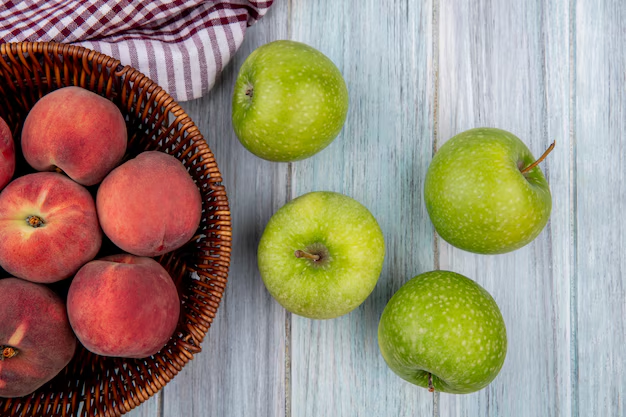Should You Refrigerate Apples? Your Guide to Apple Storage for Optimal Freshness 🍏
When you picture a crisp, juicy apple, you're likely imagining it at its peak of freshness. But how do you keep it in this ideal state for as long as possible? One of the most common debates in the realm of fruit storage is whether apples should be kept in the refrigerator. This topic sits comfortably in the category of "Other Refrigerator Topics," yet has proved surprisingly contentious. Let's dive into this fruity conundrum to explore every angle and peel back the layers of what's best for your apples.
The Natural Shelf Life of Apples
Before delving into refrigeration, it's useful to understand the natural shelf life of apples. Apples are unique compared to many other fruits. They naturally produce a compound called ethylene gas, which accelerates their ripening process and that of surrounding produce. Due to this natural characteristic, the way you store apples significantly impacts their longevity.
Key Takeaway: Apples can remain fresh for weeks to months under the right conditions. However, their storage environment is crucial in preserving their taste, texture, and nutritional content.
Should Apples Be Refrigerated?
Room Temperature vs. Refrigeration 🍎
When stored at room temperature, apples usually last about a week. After that, you'll notice a decline in texture and flavor. On the other hand, refrigeration can extend their life significantly—sometimes up to two months.
Benefits of Refrigeration
- Extended Shelf Life: Refrigeration slows down the production of ethylene gas and the subsequent ripening process.
- Preserved Crunch: Cold storage helps maintain the apple's crisp texture longer.
- Optimal Flavor: While refrigeration can sometimes dull flavors in other fruits, it typically helps apples maintain their balance of sweetness and acidity.
Room Temperature Benefits
- Immediate Consumption: Apples stored at room temperature are ready to eat right away, whereas chilled apples might need a few moments to warm up for optimal taste.
- Accessible and Aesthetic: A bowl of apples on the counter can be a homey décor element.
Pro Tip: If you plan to consume the apples within a week, keeping them at room temperature might be more convenient. For longer storage, refrigeration is the way to go.
How to Store Apples in the Refrigerator
Step-by-Step Guide to Refrigerating Apples
- Choose the Right Apples: Firm, unbruised apples are best for long-term storage.
- Keep Them Separated: Store apples in a separate drawer or shelf in the fridge to avoid affecting other produce with their ethylene gas.
- Use a Plastic Bag with Holes: This helps maintain humidity while allowing ethylene gas to escape.
- Regularly Check for Spoilage: Remove any apples showing signs of rot to prevent others from spoiling.
Ideal Refrigerator Conditions
- Temperature: Aim for roughly 30-40°F (-1-4°C).
- Humidity: Apples thrive at an 80-90% humidity level.
Quick Tip: For those using crisper drawers with dual controls, set them to "high humidity" for apples.
Other Factors Affecting Apple Longevity
Types of Apples 🍏
Different apple varieties naturally have varied storage capabilities. Generally, firmer, less sweet apples like Granny Smith or Fuji last longer in storage compared to softer, sweeter types like Gala or Red Delicious.
Organic vs. Non-Organic
Organic apples, while potentially healthier due to fewer pesticides, may spoil faster than non-organic varieties due to their lack of chemical preservatives.
Whole Apples vs. Sliced Apples
Whole apples last significantly longer than sliced ones. Once an apple is cut, it begins to oxidize rapidly, losing flavor and nutritional value.
Practical Tip: If slicing apples ahead of time, store slices in a sealed container with a bit of lemon juice to slow down oxidation.
Alternatives to Refrigeration
Traditional Methods 🧺
In the past, people stored apples in cool, dark cellars or basements. This is an excellent method if you don't want to occupy your fridge space. However, maintaining consistent temperature and humidity levels can be challenging without modern equipment.
Modern Solutions
- Vacuum Sealing: Keeps out air and prolongs freshness.
- Controlled Atmosphere Storage: Used commercially but is impractical for home use. This involves controlling oxygen and carbon dioxide levels to extend fruit life.
Common Misconceptions About Apple Storage
Misconception 1: Apples Don't Last as Long in the Fridge
Some believe refrigeration shortens apple life due to moisture loss. However, the reverse is true; appropriate refrigeration extends their usability.
Misconception 2: All Apples Need Refrigeration
While refrigeration is beneficial for extending apple life, some types, like many heritage variations, are enjoyed best fresh from the tree.
Summary and Key Tips 📝
- Refrigerate Apples: For prolonged freshness, especially if you don't plan to consume them quickly.
- Choose Firm, Unbruised Fruits: These last longer in storage compared to damaged apples.
- Proper Storage: Use a perforated plastic bag to balance humidity, and keep apples away from ethylene-sensitive produce.
- Variety Matters: Different apple types have different storage capabilities.
- Experiment and Adapt: Feel free to try storing at room temperature versus refrigeration to see what fits your lifestyle.
Should you refrigerate apples? It depends on your consumption timing and personal preferences. Use this guide to make an informed decision that keeps your apples crunchy, flavorful, and ready whenever you are! 🍎

